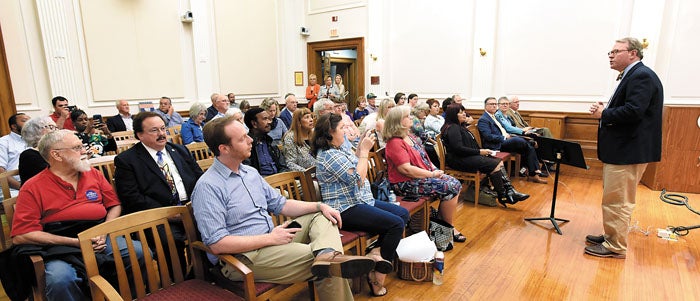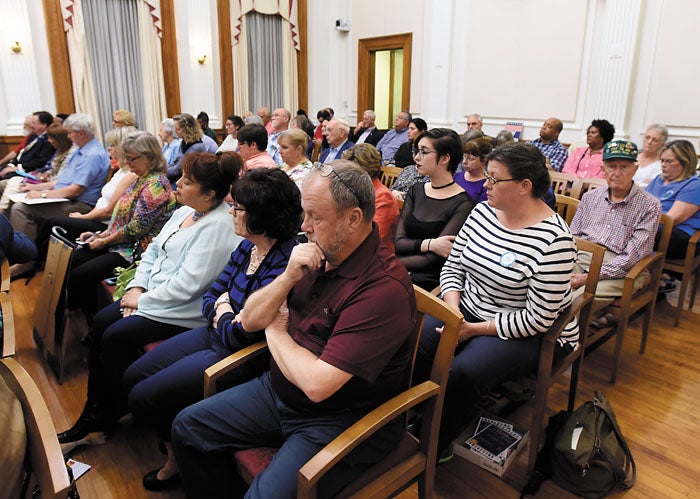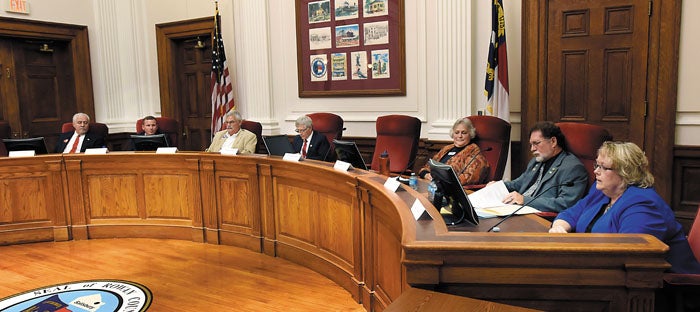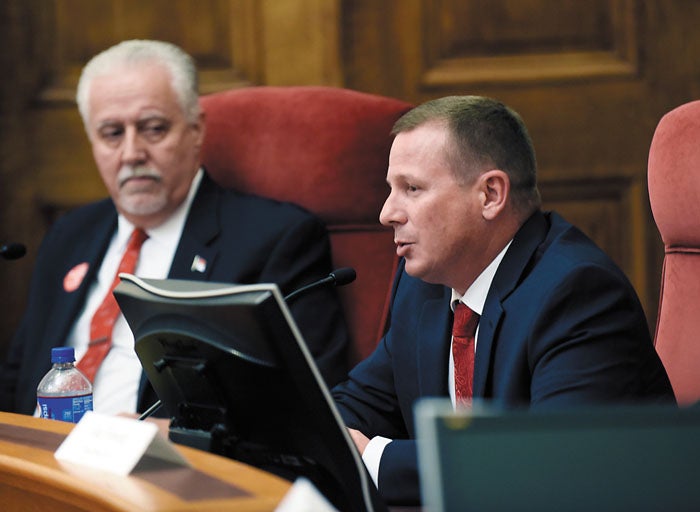Legislative candidates meet in forum on eve of early voting
Published 12:00 am Wednesday, October 17, 2018
SALISBURY — Heralded as a year of “many firsts” by local Elections Director Nancy Evans, 2018 brings with it a midterm election that has peaked interest and raised eyebrows alike.
In Rowan County, candidates have campaigned for secondary seats on boards on which they already serve. An unprecedented numbers of races are uncontested. And placeholders have stood in for candidates who would eventually be on the ballot.
Voters got to hear from a few more up-and-coming firsts Tuesday night as candidates for the General Assembly gathered for a forum sponsored by the Rowan Chamber of Commerce, AT&T, Catawba College, the Salisbury Post and WSAT radio.
Candidates in each of Rowan’s four legislative districts took part: the familiar House Districts 77 and 76 and the newly drawn House District 83 and Senate District 33.
Campaigning for House District 76 in eastern Rowan are Republican incumbent Harry Warren and Democrat Joe Fowler. In western Rowan’s District 77, Democrat Bonnie Dawn Clark faces Republican incumbent Julia Craven Howard.
Howard did not attend the forum because of a prior engagement, Warren said.
Republican Larry Pittman, also an incumbent, faces Democrat Gail Young in the 83rd District seat in the House, with the central Cabarrus district extending into Rowan through Kannapolis and China Grove.
Up for grabs this year is an open Senate District 33 seat, which includes all of Rowan and Stanly counties and features candidates Carl Ford, a Republican, and Arin Wilhem, a Democrat.
Rowan’s fresh slate of Democratic candidates faced opponents with a combined 51 years of experience in the Legislature, yet all addressed constituent concerns with knowledge and passion.
Moderator Michael Bitzer, a Catawba College professor of politics and history, presented the group with five questions submitted by readers of the Salisbury Post. Those questions and highlights from candidate responses are as follows:
An amendment on the ballot for this year’s election would require a photo ID for voting. Two questions: Do you support this amendment and, if the amendment passes, what should be the options for providing a photo ID as part of the implementation of the amendment?
Young: “I believe it has a disproportionate effect on the African-American communities. … Voting is a fundamental freedom, and if we lose the right to vote, then … we lose our democracy.”
Pittman: “We had a lot of different options in the voter ID laws that we had. … We went way beyond what should have been necessary, … and I expect we’ll do so again.”
Clark: “If we require people to provide an ID when they register to vote, I am fully confident in the Board of Elections that they will make sure that only registered voters are voting.”
Since the state of North Carolina funds a significant portion of local schools operations, what will be your approach to funding public schools and what is your stance on using taxpayer money to pay for vouchers for private schools and for charter schools?
Warren: “(Vouchers) alleviate some of the pressure in the traditional schools by virtue … (that) parents have educational freedom now to pick the type of school that will best facilitate their child’s ability to learn.”
Fowler: “Charter schools and vouchers need to be looked at very closely. There has to be accountability. We’re taking money away from our public schools. We’re taking opportunities away from the kids that go there.”
Wilhelm: “I believe that we need to start listening to our educators. … We shouldn’t as legislators try to tell people how to do a job that we haven’t had to do for a living.”
Ford: “I believe in choice. Your children should have a choice of where they go to school, and it should be your choice and it should be the best choice. … The more (charter schools), the merrier.”
What would you do in the Legislature to ensure that all North Carolina citizens receive the health care that they need?
Clark: “As long as we have health insurance in the equation, … it will never be affordable. … We deserve to … start embracing the Affordable Care Act as Step 1. I would push it beyond that to universal health care.”
Pittman: “The first thing I would do … is do away with certificate of need. That would allow a lot more affordable options for health care that would help more citizens.”
Young: “We need to try and look at how can we reduce the cost of health care within our state, not just the insurance but the health care itself. … I also think we should have expanded Medicaid.”
What three strategies do you support to address the opioid issue facing our state and local communities?
Ford: “The No. 1 strategy is working with our churches. … Law enforcement is overburdened with this problem right now, and it’s a social problem and it’s a cultural problem. … The No. 1 answer is Jesus.”
Wilhelm: “We need to take a whole-person approach. … The epidemic stems from not only people in accidents. … It also comes from poverty, adverse childhood experiences (and more). … We need to address all these things.”
Fowler: “You have so many different levels that cause addiction. … It’s a big social problem, and I think we need to do everything to help on the medical and the counseling levels that we can.”
Warren: “No. 1 is communication, No. 2 would be evaluation and No. 3 would be to respond. We communicate with … the authorities and the physicians, … we evaluate … (the legislation) … and then we respond to it.”
If elected this November, what do you want to be best known for in your two years of service in the General Assembly?
Young: “My ability to work directly with our elected officials, with our local leaders to listen to the issues that they have, … to hear what they need from Raleigh and to be an advocate for them.”
Pittman: “I’m one who’s been leading the fight to get rid of Common Core in North Carolina. I hope I will eventually be able to succeed. … It is destroying education, and we need to get rid of it.”
Clark: “To be a unifying voice of civility, respect and service. (Extreme) partisanship is the biggest problem this nation faces. I work diligently to avoid labels, … to identify the issues that affect all of us as human beings.”
Warren: “Having been accessible, for trying to keep my constituents informed and for listening to them regardless of their political positions, and for responding to the challenges in the Legislature in an objective and pragmatic and principled manner.”
Fowler: “I don’t want to be known for thinking I’m always right, but I do want to be known for doing the right thing. … Responding instead of reacting … (and) using common sense to get the right things done.”
Wilhelm: “I’d like to be known as the person who cared deeply for his communities and worked as hard as he could to improve the lives of those that he served.”
Ford: “I’m going to make mistakes … but it won’t be from a lack of caring. It won’t be from a lack of studying or talking and learning what the people at home need.”









